Article and photos by Rob Danforth
Vertical food gardening saves space & time and maybe your knees and back!
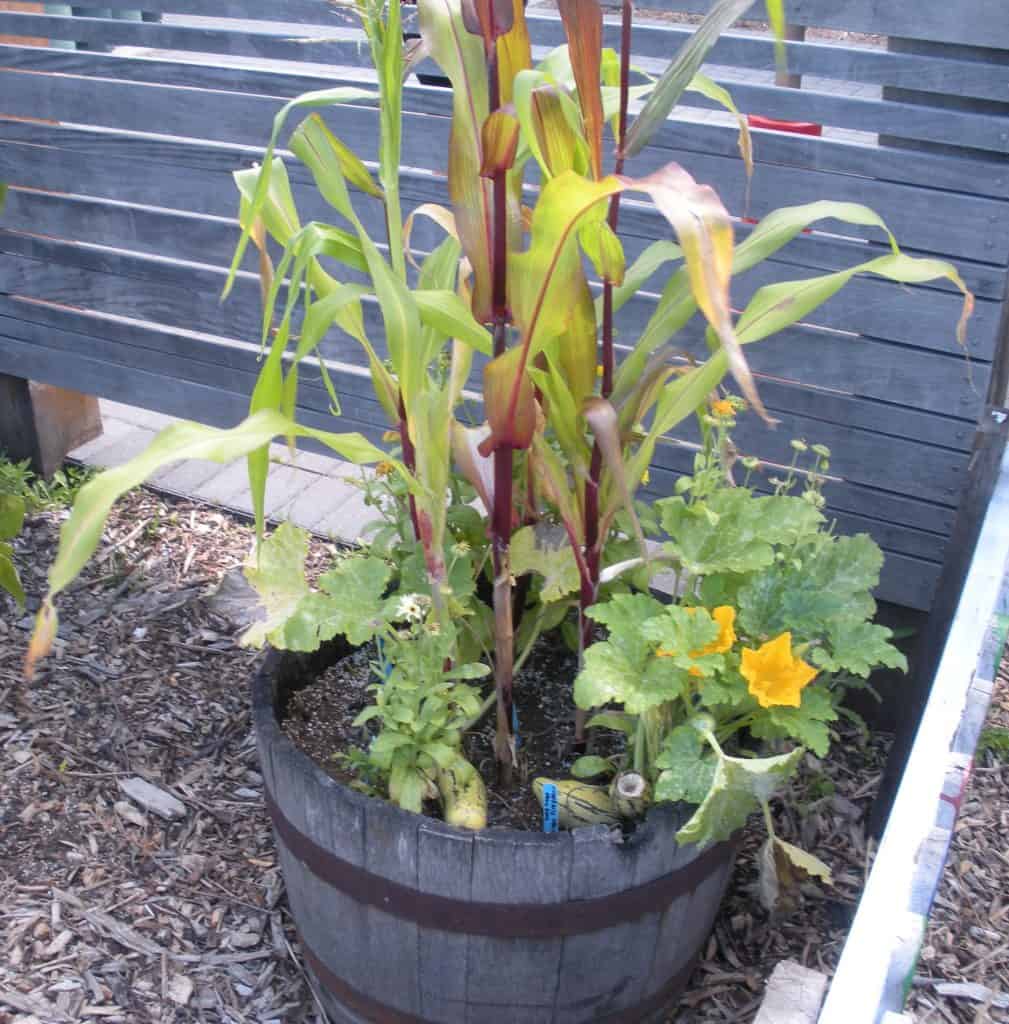
Vertical gardening allows plants to grow up and along rather than down and out; grow flat against a wall, fence, or trellis (“espaliered”), or stacked in layers like bleachers. This takes work to start, but vertical gardening maximizes the use of available vertical space, saves horizontal space, places plants at convenient heights, and reduces labour for both maintenance & harvesting. Food production can happen in very small sunny spaces.
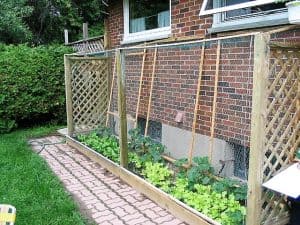
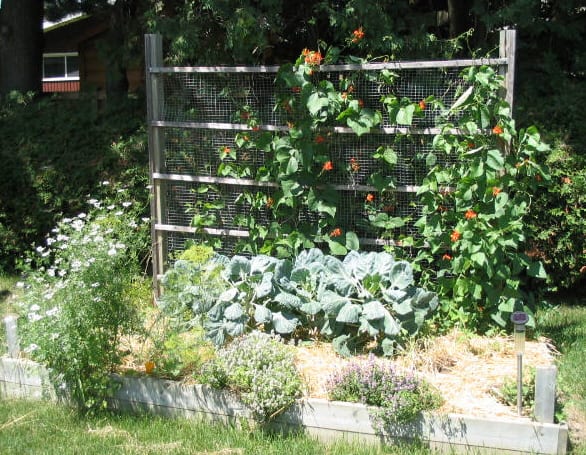
- Trellises for plants to climb up from soil or up from containers: wood lattice; bamboo, wood, or metal frames with string, wire, or plastic netting; recycled metal canopy support panels; or sturdy wire mesh used in fencing or cement reinforcement.
- Pocket planters get more plants in limited space: plastic stackable sectionals, terracotta pocket pots, PVC tubes standing upright with holes cut for plants; chicken wire or “hardware cloth” cylinders lined with landscape fabric and holes cut in the sides for plants; used wooden pallets standing on their sides or leaning against a structure and lined with landscape fabric or 6 mil construction plastic with holes punched for plants to be inserted.
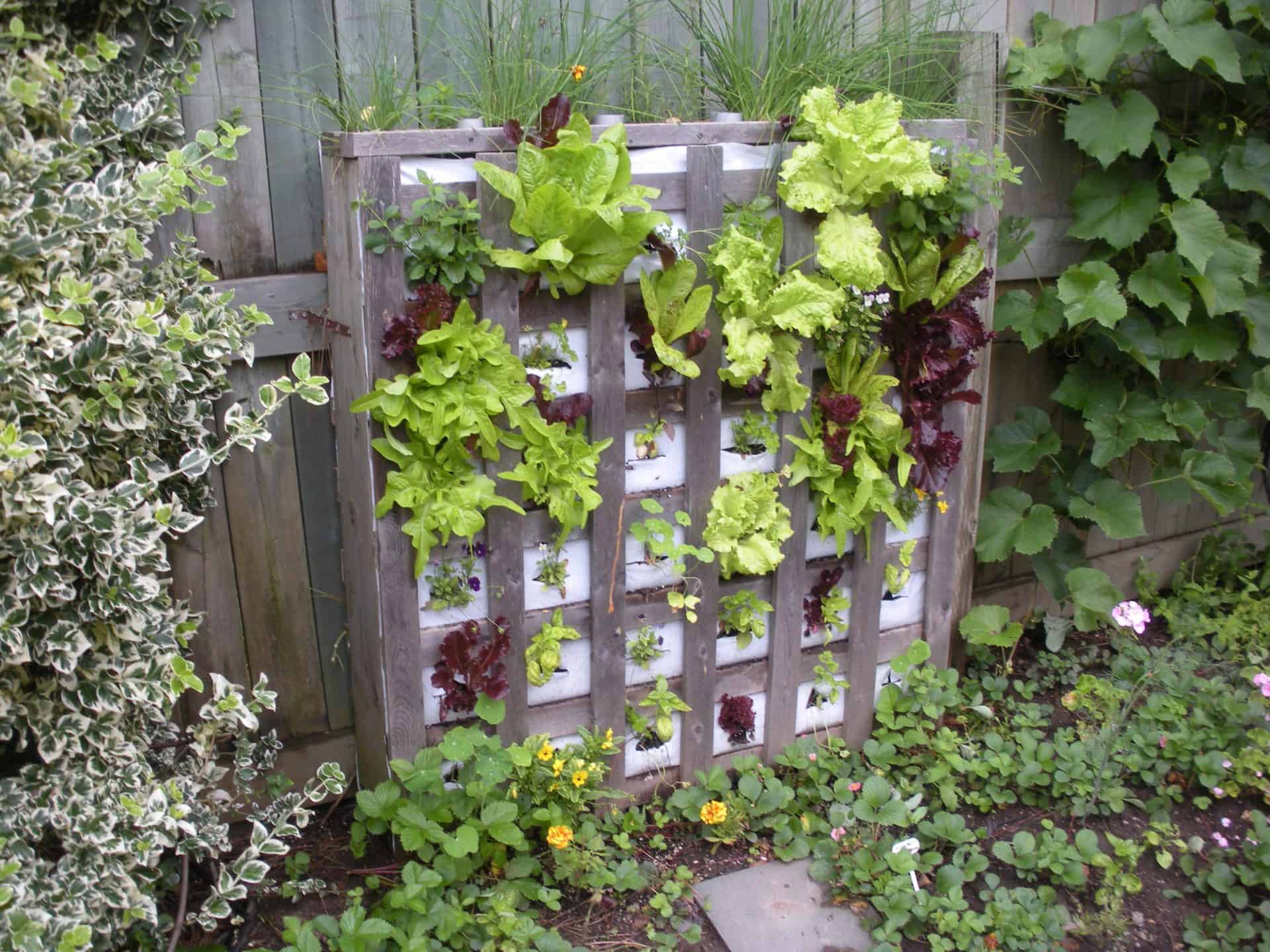

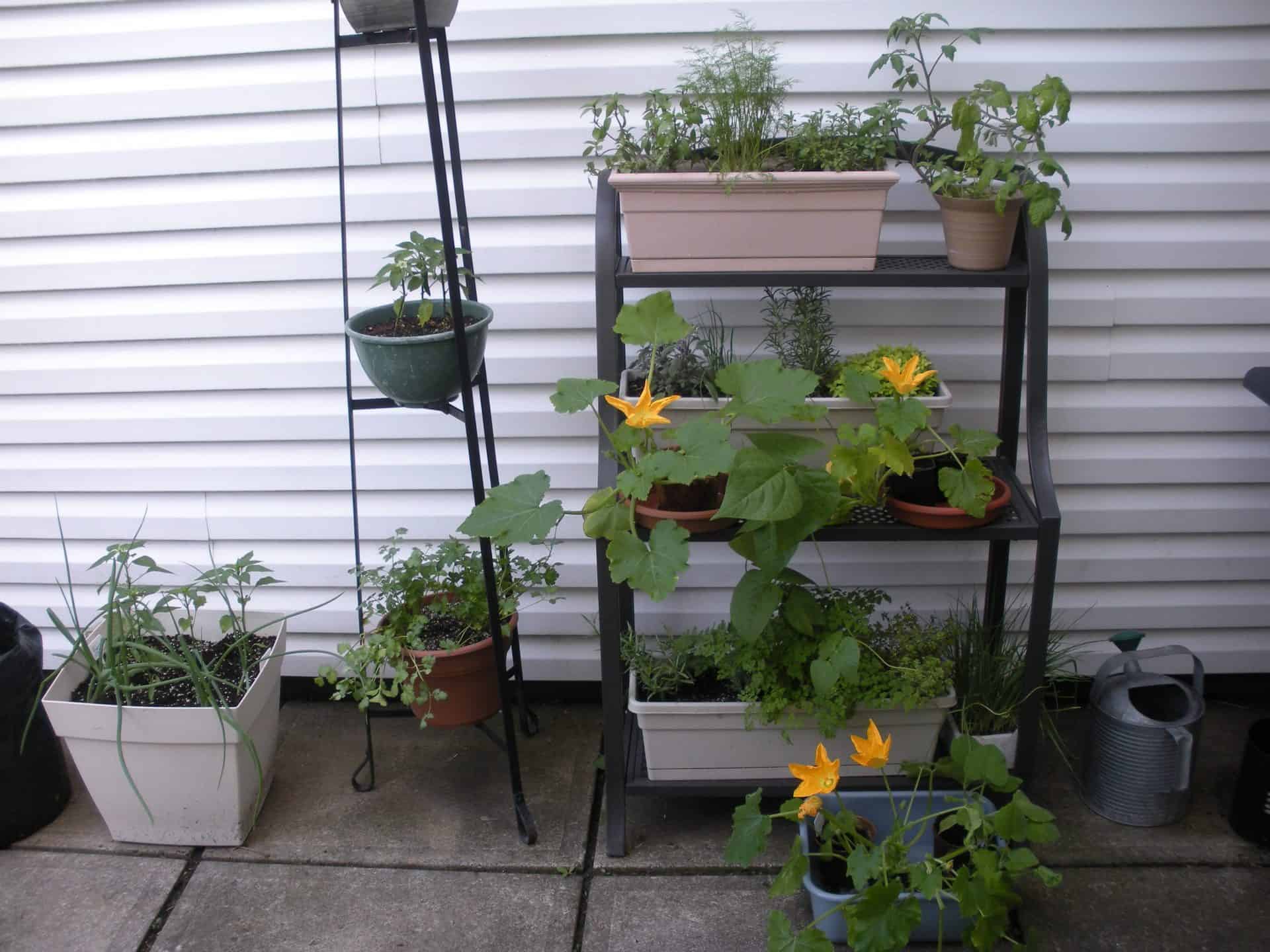
- Tripods of bamboo, hardwood, plastic coated steel rods, greenwood trimmings, or foraged deadwood can get trailing plants up off the ground to reduce spreading. Tip: homemade rings of sisal or cotton butcher string can provide rungs for plants to climb.
- Stakes, cages, spirals, cones, cradles, and arbors all can support plants up off the ground or upwards from containers and keep plants within desirable limits. These can be of various materials such as metal, wood, plastic fencing, etc.
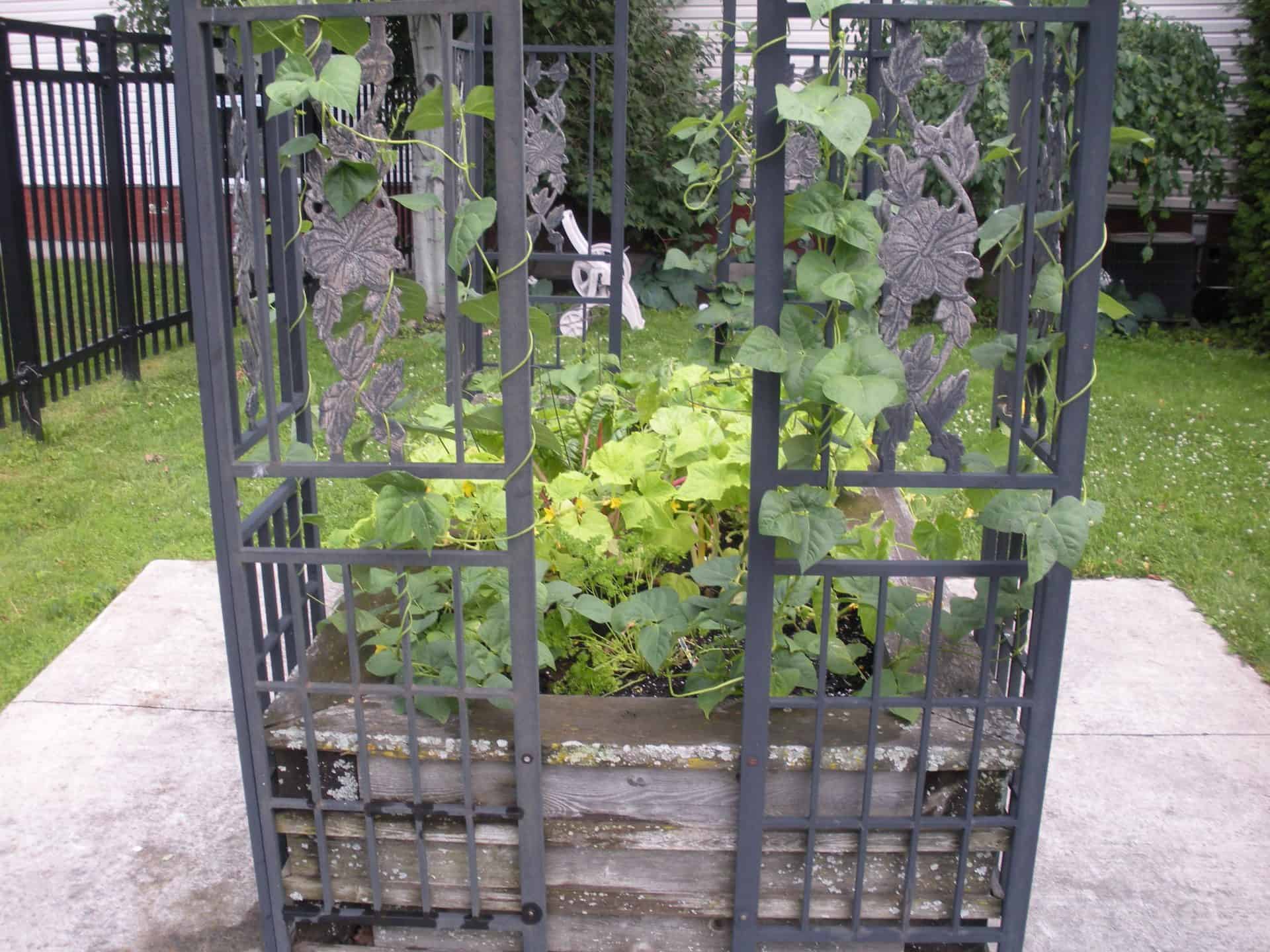
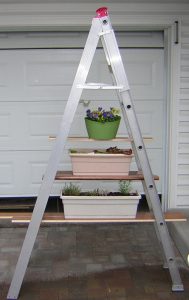
- Layered plant containers such as bleachers, benches, tables, scaffolds, metal or wooden pot towers can accept containers of various sizes and shapes and stack them vertically. How about that trestle ladder you use so infrequently, with boards as shelves? Trestle ladder
- Steel crooks or brackets will hold or suspend pots, boxes, or grow bags from walls, posts, or canopies – Tip: cucumbers and tomatoes could hang down from a supported container above a patio, porch, or deck.
- “A” frames, such as 2 trellises wired together at the top or 4×8 plywood panel stand alone or propped on a slant against a wall or fence, with hooks or nails to attach (and remove at your convenience) window boxes, pop bottle or juice jug halves with drain holes punched, plastic flower pots, or tin cans, let heavy fruit lie on an angle against the frame rather than dangle straight down (e.g., squash, tomatoes, cucumbers, gourds). Dangling fruit may be too heavy for the vines without some support. Tips: a hammock of a recycled net bag (e.g., grocery store orange/onion bags) can support heavy fruit. Also, do not use cans lined with white plastic (keeps food acid from eating the can) – this plastic coat may release the chemical BPA, when warmed by the sun. Choose plastic containers that are food grade (see the recycle triangle number and choose plastics with numbers 1, 2, 4, or 5 — 4’s and 5’s are common in garden and food containers. 1’s tend to be thin and brittle).
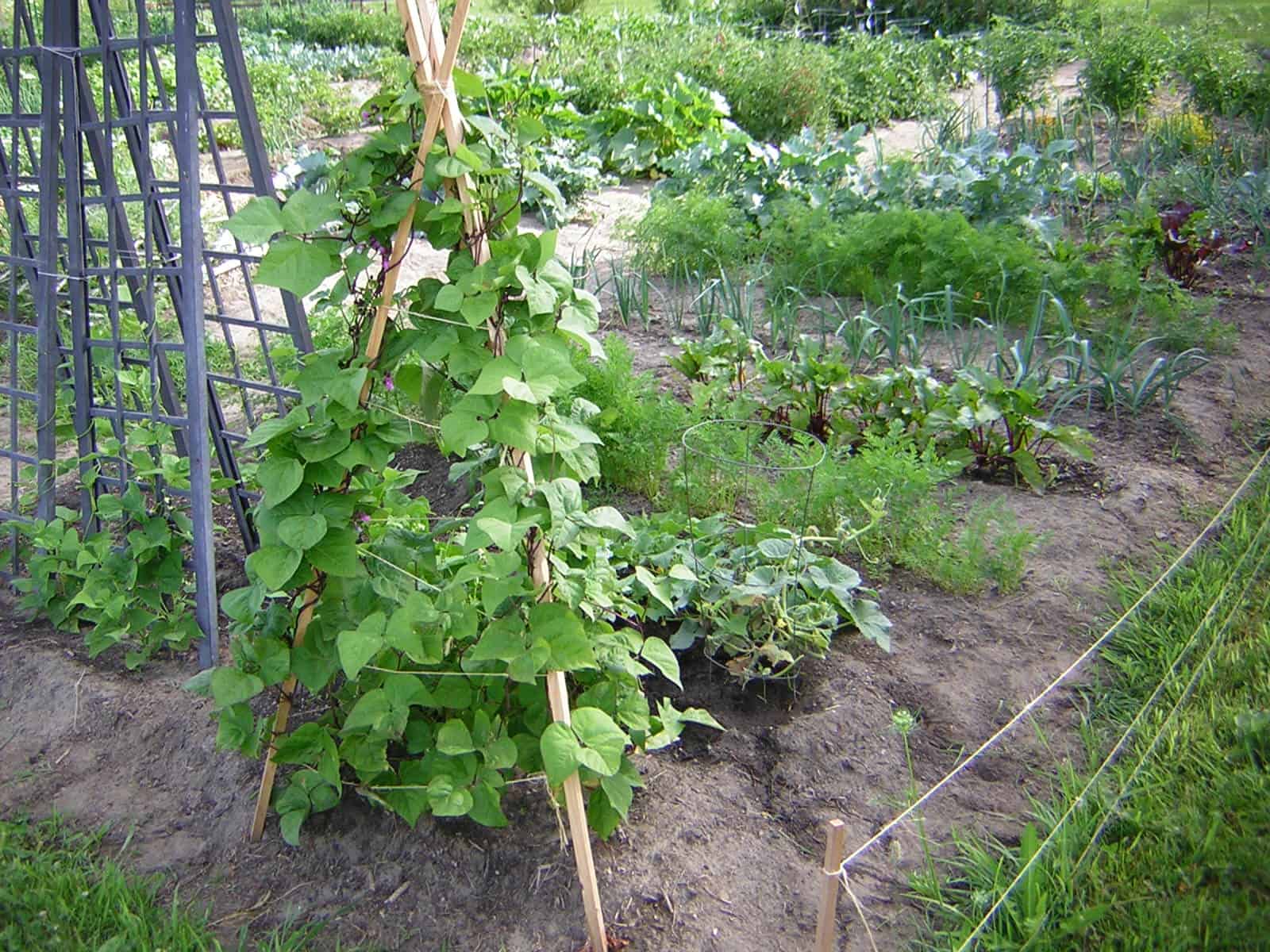
- Espaliered fruit trees and berry producing shrubs are plants trained flat along a wall, fence, or cable to control growth flat in a confined area. A frame or trellis will be necessary; wire the plant into it to train it flat against the support while it is young and supple and remove outward poking branches before someone gets one in the face.
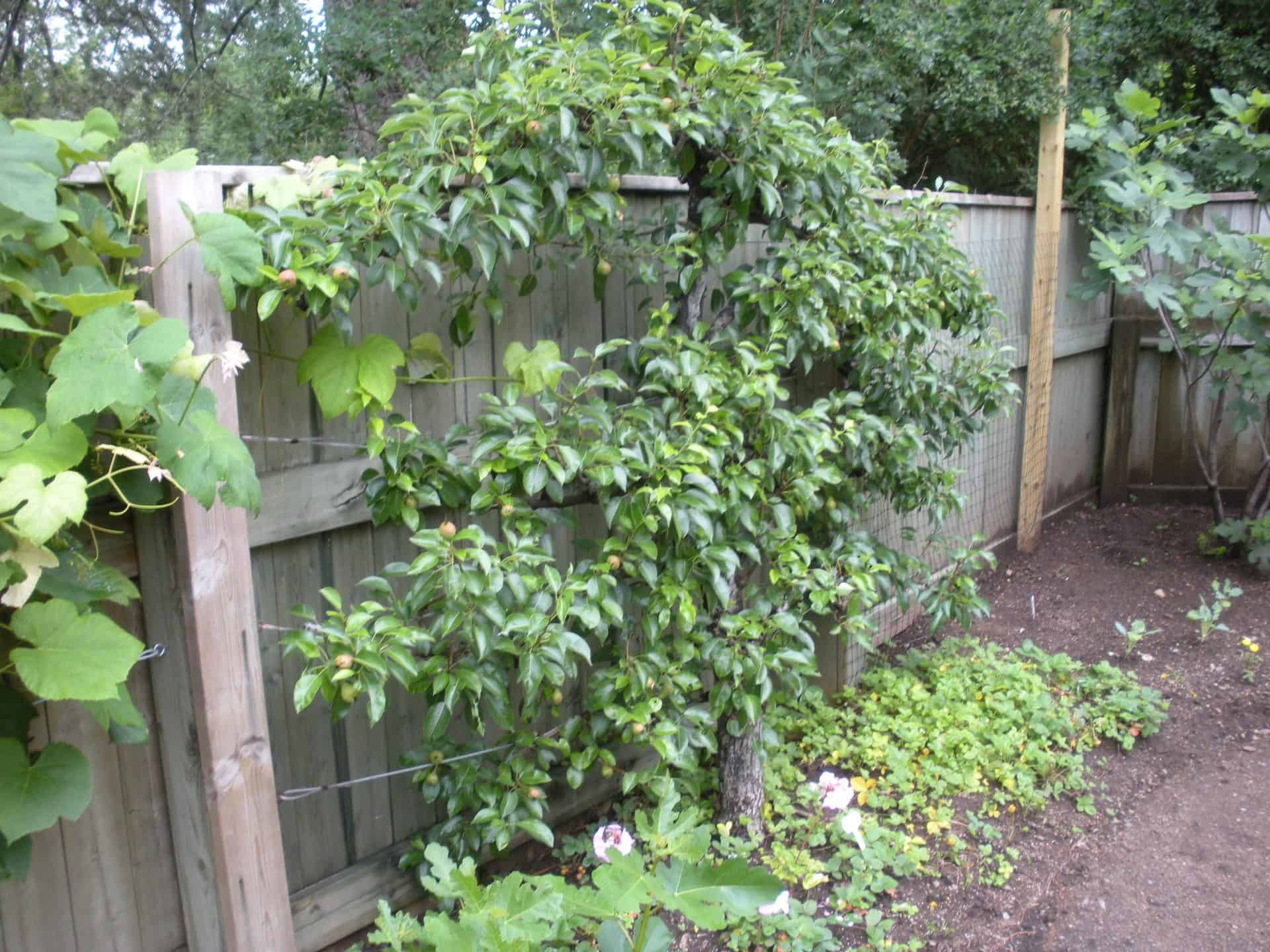
Organic food gardening upward and along rather than downward and outward can maximize the available space you may not be using anyway, and provide a pleasant green vista as well as pantry supplies. Garden greenery in its many hues is one of the colours that is relaxing (unlike the strong, attack, “notice me” colours seen on grocery store shelves that tend to numb shoppers). Perhaps greenery is why camping is so popular: when I wasn’t gardening, tripping in the wilderness certainly worked for me and my students! Let’s remedy our urban nature deficit disorder – green up! … then eat some of it!